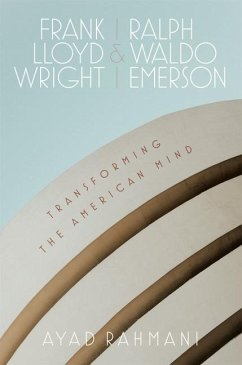"Frank Lloyd Wright and Ralph Waldo Emerson: Transforming the American Mind is an interdisciplinary volume of literary and cultural scholarship that examines the link between two pivotal intellectual and artistic figures, probing how the author's writings influenced the architect's campaign against dominant strains of American thought. Inspired by Emerson's writings on the need to align exterior expression with interior self, Wright believed that architecture was not first and foremost a matter of accommodating spatial needs, but a tool to restore intellectual and artistic freedom, long lost in the process of modernization. Ayad Rahmani shows that Emerson's writings provide an avenue for interpreting Wright's complex approach to country and architecture. The two thinkers cohered around a common concern for a nation derailed by forces that were not only nefarious, but which also flew in the face of the country's original promise. In Emerson's condemnations of slavery and inequality, Wright found inspiration for seeking redress against the humiliations suffered by the modern worker, be it at the hands of an industrial manager or office boss. His designs sought to challenge dehumanizing labor practices and open minds to the beauty and science of agriculture and the natural world. Emerson's example helped Wright develop architecture that aimed less at accommodating a culture of clients and more at raising national historical awareness while also arguing for humane and equitable policies. As evidence of these interventions, Rahmani details the genesis of recent developments in urban agriculture, rooftop gardens, and cohousing. Frank Lloyd Wright and Ralph Waldo Emerson presents a new approach to two vital thinkers whose impact on American society remains evident to this day"--
Hinweis: Dieser Artikel kann nur an eine deutsche Lieferadresse ausgeliefert werden.
Hinweis: Dieser Artikel kann nur an eine deutsche Lieferadresse ausgeliefert werden.








